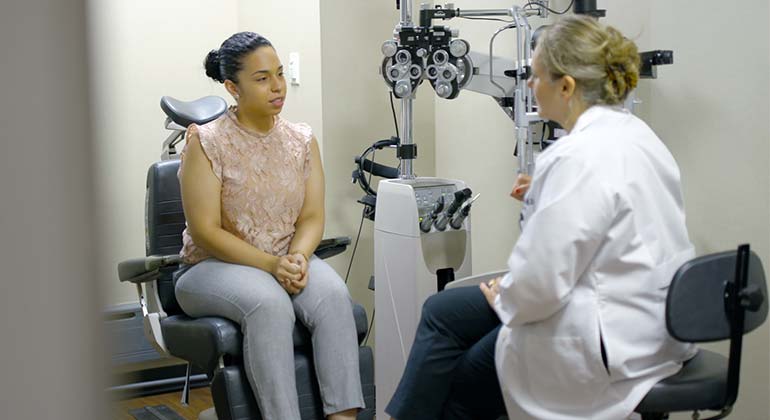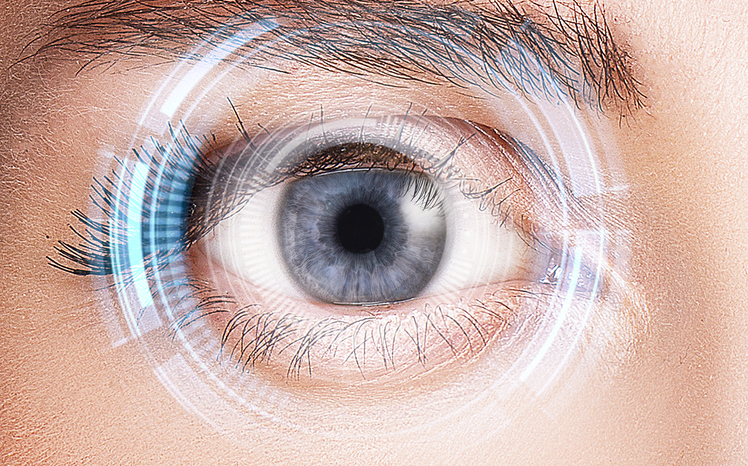Examining the current Improvements in Retina Treatments for Different Eye Problems

Developments in Macular Degeneration Therapies
In the realm of ophthalmology, significant innovations have actually arised in the field of treating macular degeneration, using expect boosted outcomes and lifestyle for individuals. Macular deterioration, a leading reason for vision loss in older adults, has seen considerable progress in therapy choices. One groundbreaking advancement is the advancement of anti-VEGF (vascular endothelial growth element) injections, which have revolutionized the monitoring of damp age-related macular deterioration. These shots function by targeting and inhibiting the abnormal blood vessel development that brings about vision loss. Scientific trials have actually revealed that routine anti-VEGF injections can assist maintain vision and also enhance sight in some clients.
In addition, the intro of implantable miniature telescopes for end-stage macular deterioration has actually provided brand-new opportunities for improving vision and lifestyle in choose individuals. These telescopic implants can boost visual acuity and broaden the visual area, enabling individuals with sophisticated macular degeneration to execute everyday tasks with better convenience. andalusia pediatrics. In general, these advancements stand for considerable strides in the treatment of macular degeneration, using hope and improved end results for individuals encountering this challenging condition
Breakthroughs in Diabetic Retinopathy Therapies
Significant advancements in the treatment of diabetic retinopathy have recently arised, providing encouraging potential customers for boosting patient outcomes and vision health and wellness. These injections work by reducing abnormal blood vessel growth and leak in the retina, therefore protecting vision.
In addition, laser therapies such as focal/grid laser and pan-retinal photocoagulation have actually worked in dealing with proliferative diabetic person retinopathy by targeting details locations of the retina to minimize uncommon capillary development or seal dripping blood vessels. cardiologist andalusia. Novel surgical strategies like vitrectomy have actually likewise progressed, allowing specialists to eliminate blood or scar tissue from the eye's vitreous gel more specifically
Innovations in Retinal Detachment Administration
With improvements in medical methods and innovation, managing retinal detachment has seen substantial renovations recently. One noteworthy development is using small-gauge vitrectomy systems, which permit minimally intrusive procedures, leading to faster recuperation times and better outcomes for patients. These systems make use of smaller instruments, resulting in reduced trauma to the eye and allowing cosmetic surgeons to perform delicate maneuvers with better precision.
Additionally, the growth of advanced imaging technologies such as optical comprehensibility tomography (OCT) has revolutionized the medical diagnosis and tracking of retinal detachment. OCT supplies high-resolution cross-sectional images of the retina, permitting ophthalmologists to envision the extent of detachment and strategy treatment extra properly.
Additionally, making use of perfluorocarbon liquids during surgical procedure has actually boosted medical success prices by facilitating the reattachment of the retina. These fluids assist flatten the retina and displace subretinal fluid, assisting in the positioning of the removed retina back right into location.
Progress in Retinitis Pigmentosa Solutions
Considerable innovations in study and therapy techniques are driving development in resolving Retinitis Pigmentosa, a genetic eye disorder that influences the retina's capability to react to light. Retinitis Pigmentosa (RP) brings about a gradual decline in vision, often causing one-track mind and also loss of sight. However, current growths in the field deal hope to individuals impacted by this problem. andalusia pediatrics.

In addition, stem cell therapy shows pledge in changing damaged retinal cells with healthy ones, potentially recovering vision in people with RP. Scientific trials are underway to examine the safety and security and efficiency of this innovative method.
Advancing Treatments for Retinal Vascular Diseases
Building upon the improvements in resolving Retinitis Pigmentosa, scientists are currently discovering evolving treatments for retinal vascular diseases, intending to further boost vision care and results in individuals with numerous retinal conditions. Retinal vascular diseases, such as diabetic retinopathy and retinal blood vessel occlusion, are identified by irregularities in the capillary that provide the retina, leading to vision problems or perhaps vision loss if left unattended. Existing treatments for retinal vascular diseases consist of anti-VEGF shots, laser treatment, and corticosteroids to take care of the underlying vascular changes and reduce the risk of difficulties.
Current developments in the area of retinal vascular illness treatments concentrate on unique medication distribution systems, genetics therapies, and stem cell-based methods to target the specific pathophysiology of these problems. As an example, sustained-release implants are being developed to give constant medicine delivery, decreasing the requirement for frequent shots. Gene treatments aim to correct hereditary mutations connected with specific retinal vascular diseases, using a potential treatment or lasting monitoring method. Stem cell study holds assurance for regrowing harmed retinal tissues and recovering visual function in clients with vascular retinal conditions. By advancing these cutting-edge treatments, scientists strive to enhance the high quality of life for people affected by retinal vascular conditions and lead the way for personalized and extra effective vision treatment strategies.
Final Thought
To conclude, the area of retina treatments has seen substantial advancements in the last few years throughout numerous eye problems such as macular degeneration, diabetic retinopathy, retinal detachment, retinitis pigmentosa, and retinal vascular illness. These developments offer expect enhanced end results and top quality of life for patients dealing with these conditions. Continued research study and technology in this field are critical for additional development in the therapy of retinal conditions.
From Macular Deterioration to Diabetic Retinopathy, Retinal Detachment, Retinitis Pigmentosa, and Retinal Vascular Conditions, the newest developments are reshaping the landscape of ocular medical care.Building upon the improvements in resolving Retinitis see here Pigmentosa, scientists are now exploring evolving treatments for retinal vascular conditions, intending to additionally boost vision care and outcomes in people with numerous retinal problems. Retinal vascular illness, such as diabetic person retinopathy and retinal vein occlusion, are identified by problems in the blood vessels that provide the retina, leading to vision disability or also vision loss if left neglected. Stem cell research holds promise for restoring harmed retinal tissues and restoring visual function in people my explanation with vascular retinal conditions.In conclusion, the area of retina therapies has seen substantial innovations in current years throughout various eye problems such as macular deterioration, diabetic retinopathy, retinal detachment, retinitis pigmentosa, and retinal vascular diseases.